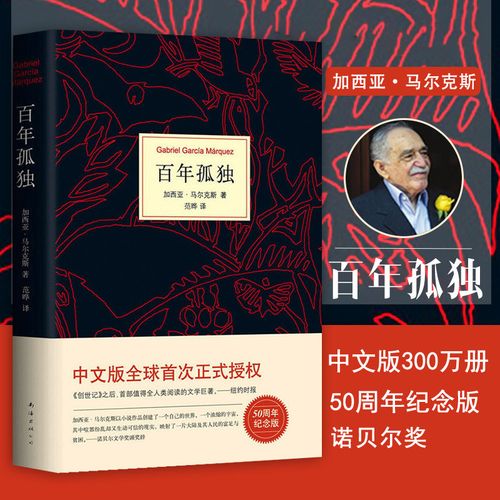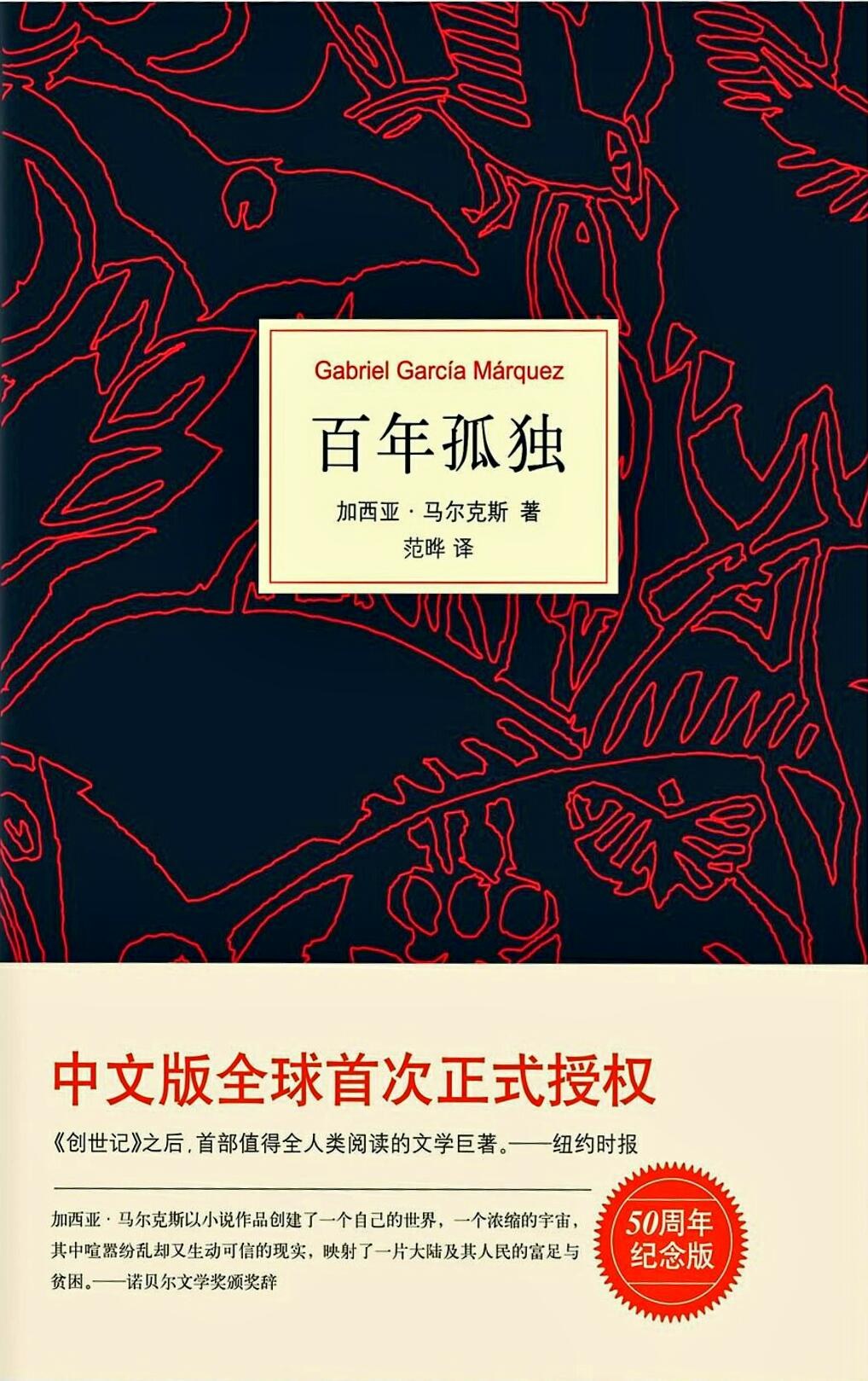WULOLIFE
《百年孤独》 作者: [哥伦比亚] 加西亚·马尔克斯 副标题: 50周年纪念版
《百年孤独》 作者: [哥伦比亚] 加西亚·马尔克斯 副标题: 50周年纪念版
Couldn't load pickup availability
Description
内容简介 · · · · · ·
《百年孤独》是魔幻现实主义文学的代表作,描写了布恩迪亚家族七代人的传奇故事,以及加勒比海沿岸小镇马孔多的百年兴衰,反映了拉丁美洲一个世纪以来风云变幻的历史。作品融入神话传说、民间故事、宗教典故等因素,巧妙地糅合了现实与虚幻,展现出一个瑰丽的想象世界,成为20世纪重要的经典文学巨著。1982年加西亚·马尔克斯获得诺贝尔文学奖,奠定世界级文学大师的地位,很大程度上便是凭借《百年孤独》的巨大影响。
————————————————————————
编辑推荐
【50周年纪念版!全新典藏内封;限量赠50周年精美魔幻明信片1套】
【马尔克斯代表作,未作任何删节】
缔造文坛传奇与文学奇迹;影响世界小说走向的文学巨匠加西亚·马尔克斯巅峰杰作!代表“魔幻现实主义”文学主峰;征服全球读者、作家、出版社、版权经纪人、书店、媒体的鸿篇巨制;被誉为“《堂吉诃德》之后zui伟大的西班牙语作品”;中国读者等待了近半个世纪的殿堂级经典《百年孤独》中文版惟一正式授权,根据马尔克斯指定版本翻译,未做任何增删!主要凭借《百年孤独》的巨大影响,马尔克斯赢得诺贝尔文学奖,奠定了世界文学大师的地位。
作品中将现实主义场面和虚构情境巧妙融合,展现出一个光怪陆离的想象世界,映射了一个大陆的风云变幻和百年沧桑;《百年孤独》融神话故事、《圣经》典故、民间传说于一体,产生出令全球读者无比沉醉的巨大魔力,被誉为“自《创世记》后首部值得全人类阅读的文学巨著”。
诺贝尔文学奖
名人推荐
个感觉是“震撼”。原来小说可以这样写。紧接着感觉到遗憾,二十多年来我始终在跟爱是因为打开我们头脑很多的禁锢,恨他是因为他的吸引力太强大了。——2012年诺贝尔文学奖得主莫言
《百年孤独》我读了三遍,现在我的孩子也已经读完《百年孤独》,他在英国跟—
我对《百年孤独》有非常真实的、崇敬的感觉。这样的作品会不停地卖,一代一代的人都会读,是长销书,当年文学青年几乎人手一本。——苏童
《百年孤独》乃是过去五十年来所有语言中zui伟大的杰作。——萨尔曼·拉什迪
一部惟一的美洲《圣经》。——卡洛斯·富恩特斯
《百年孤独》在马尔克斯构建的虚拟世界中达到了顶峰。这部小说整合并且超越了他以前的所有虚构,从而缔造了一个极其丰饶的双重世界。它穷尽了世界,同时自我穷尽。——巴尔加斯·略萨
马尔克斯是所有语言中zui伟大的作家。——比尔·克林顿
他是个强有力的作家,有着丰富的想象。他继承了欧洲政治小说的伟大传统,其结果是历史剧与个人戏剧合二为一.
韩素音
媒体推荐
《创世记》之后,首部值得全人类阅读的文学巨著。——《纽约时报》
一个浓缩的宇宙,其中喧嚣纷乱却又生动可信的现实,映射了一片大陆及其人民的富足与贫困。——诺贝尔文学奖颁奖辞
作者简介 · · · · · ·
1927于哥伦比亚马格达莱纳海滨小镇阿拉卡塔卡。童年与外祖父母一起生活。1936年随父母迁居苏克雷。1947年1948始出版文学作品。六十年代初移居墨西哥。1967年出版《百年孤独》。1982年获诺贝尔文学奖。其作品被认为是“20世纪的文学标杆”,影响滋养了几代中文作家。
主要作品有长篇小说《百年孤独》《霍乱时期的爱情》,中篇小说《没有人给他写信的上校》《一桩事先张扬的凶杀案》,短篇小说集《世上最美的溺水者》《礼拜二午睡时刻》,自传《活着为了讲述》,非虚构文学作品《一个海难幸存者的故事》等。
作为魔幻现实主义文学的代表作《百年孤独》酝酿达十数年之久,1965年开始创作,1967年出版,在拉丁再现拉丁美洲社会历史图景的鸿篇巨著”、“值得全人类阅读的文学巨著”。

